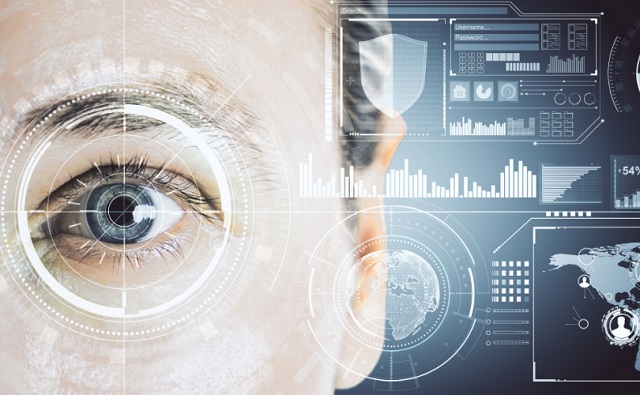Digital ID
Age of online privacy coming to an end as Australia adopts digital ID

Australia’s eSafety Commissioner Defends Controversial Online Age Verification Digital ID Methods
|
|
Digital ID
Canada moves forward with digital identification for federal benefits seekers

From LifeSiteNews
The Canadian government will move ahead with digital identification for anyone seeking federal benefits, including seniors on Old Age Security.
Canada’s Department of Employment, in a recent note in Prime Minister Mark Carney’s 2025 budget, said that changes will be made to the Department of Employment and Social Development Act. The goal of the changes is to “enable the delivery of more integrated and efficient services across government.”
“These amendments would benefit all Canadians by enabling the development of more efficient and convenient government services,” reads the note, adding, “Modernizing legislative authorities to support information sharing and digital services would particularly benefit groups facing barriers due to outdated, paper-based processes, particularly seniors.”
The note did not give specific details of how Canadians’ personal information would be used “across government services.” However, the recent message comes only a few months after the government hired consultants to investigate a digital ID system.
As reported by LifeSiteNews, the Canadian government hired outside consultants tasked with looking into whether or not officials should proceed with creating a digital ID system for all citizens and residents.
As per a May 20 Digital Credentials Issue memo, as noted by Blacklock’s Reporter, the “adoption” of such a digital ID system “may be difficult.”
Canada’s Department of Employment has said that such a digital ID system would not be mandatory and would remain “voluntary and will not replace existing in-person, mail, or telephone-based services.”
However, as late as February, the Liberal government under former Prime Minister Justin Trudeau’s immigration ministry, as reported by LifeSiteNews, was secretly asking Canadians via surveys if they would accept a national identification program that would likely end up requiring each citizen to always have a type of “digital” passport on them.
Canada’s Privy Council research from 2023 noted that there is strong public resistance to the use of digital IDs to access government services.
Conservative leader Pierre Poilievre nonetheless sounded the alarm by promising to introduce a bill that would “expressly prohibit” digital IDs in Canada.
Digital IDs and similar systems have long been pushed by globalist groups like the World Economic Forum, an organization with which Carney has extensive ties, under the guise of ease of access and security.
Critics, however, have warned that the purpose of such a system is actually to centralize control over citizens. This opinion seems to be mirrored by the general public, with a Bank of Canada survey finding that Canadians are wary of a government-backed digital currency, concluding that a “significant number” of citizens would resist the implementation of such a system.
Carney has a history of backing central bank digital currencies and supported in 2023 “choking off the money” donated to the Freedom Convoy protests against COVID mandates.
Digital ID
Toronto airport requests approval of ‘digital IDs’ for domestic airport travel

From LifeSiteNews
A few months ago, the Canadian government hired outside consultants who will be tasked with looking into whether or not officials should proceed with creating a digital ID system for all citizens and residents.
Canadian airport officials asked the federal government to implement a digital ID for domestic travelers as an option in the name of “modernization.”
Currently, domestic travelers are only required to use physical identification for air travel, including a driver’s license, passport, or government-issued ID card.
However, Toronto’s Pearson International Airport recently recommended that Canada’s Secure Air Travel Regulations be amended to allow for “digital ID to be recognized.”
“To modernize and support enhanced passenger experience, we ask that the government endorse system-wide border and screening modernization including immediate regulatory changes,” Pearson representatives told Canada’s House of Commons finance committee in a recent submission.
Airport managers wrote that “Canada should proactively embrace both emerging and proven technologies that have the potential to enhance the passenger experience and improve operational efficiency and promote productivity across the sector.”
“Key initiatives should include accelerating the adoption of a common digital ID for both domestic and international travel.”
The Canadian Airports Council also told Parliament that a national digital ID program should start with airport travelers, including the introduction of “biometrics.”
The Council asked to “enable digital ID and biometrics in air travel” to allow it to “enable more efficient use of space, reduce pressure on infrastructure and enhance security.”
“At present, Canada is behind our international peers in ensuring travel process security screening, Customs and border procedures and boarding are modern, efficient, simple and biometrically based,” it wrote.
Only non-Canadians are currently mandated to undergo biometric screening as well as fingerprint scans when they enter Canada.
To date, Parliamentary committees have shot down requests for a domestic national identification system.
Some nations, such as the United Kingdom, have recently said they will mandate digital ID using the pretext of illegal immigration as the catalyst.
As reported by LifeSiteNews a few months ago, the Canadian government hired outside consultants who will be tasked with looking into whether or not officials should proceed with creating a digital ID system for all citizens and residents.
Canada’s Privy Council research from 2023 noted that there is strong public resistance to the use of digital IDs to access government services.
Prime Minister Mark Carney has a history of backing central bank digital currencies and supported in 2023 “choking off the money” donated to the Freedom Convoy protests against COVID mandates.
As late as February, the Liberal government under former Prime Minister Justin Trudeau’s immigration ministry, as reported by LifeSiteNews, was secretly asking Canadians via surveys if they would accept a national identification program that would likely end up requiring each citizen to always have a type of “digital” passport on them.
While the Liberal government under Trudeau insisted the program would be optional, Conservative leader Pierre Poilievre nonetheless sounded the alarm by promising to introduce a bill that would “expressly prohibit” digital IDs in Canada.
Digital IDs and similar systems have long been pushed by globalist groups like the World Economic Forum, an organization with which Carney has extensive ties, under the guise of ease of access and security.
Critics, however, have warned that the purpose of such a system is actually to centralize control over citizens. This opinion seems to be mirrored by the general public, with a Bank of Canada survey finding that Canadians are very wary of a government-backed digital currency, concluding that a “significant number” of citizens would resist the implementation of such a system.
-

 armed forces2 days ago
armed forces2 days agoIt’s time for Canada to remember, the heroes of Kapyong
-

 Digital ID2 days ago
Digital ID2 days agoCanada moves forward with digital identification for federal benefits seekers
-

 Daily Caller1 day ago
Daily Caller1 day agoUS Nuclear Bomber Fleet Shares Fence With Trailer Park Linked To Chinese Intel-Tied Fraudster
-

 Alberta2 days ago
Alberta2 days agoSchool defunding petition in Alberta is a warning to parents
-

 Daily Caller1 day ago
Daily Caller1 day agoLaura Ingraham Presses Trump On Allowing Flood Of Chinese Students Into US
-

 espionage1 day ago
espionage1 day agoChinese-Owned Trailer Park Beside U.S. Stealth Bomber Base Linked to Alleged Vancouver Repression Case
-

 Business2 days ago
Business2 days agoLiberals refuse to disclose the amount of taxpayer dollars headed to LGBT projects in foreign countries
-

 armed forces2 days ago
armed forces2 days agoRecounting the amazing heroics of the ‘Pied Piper’ of Saipan







